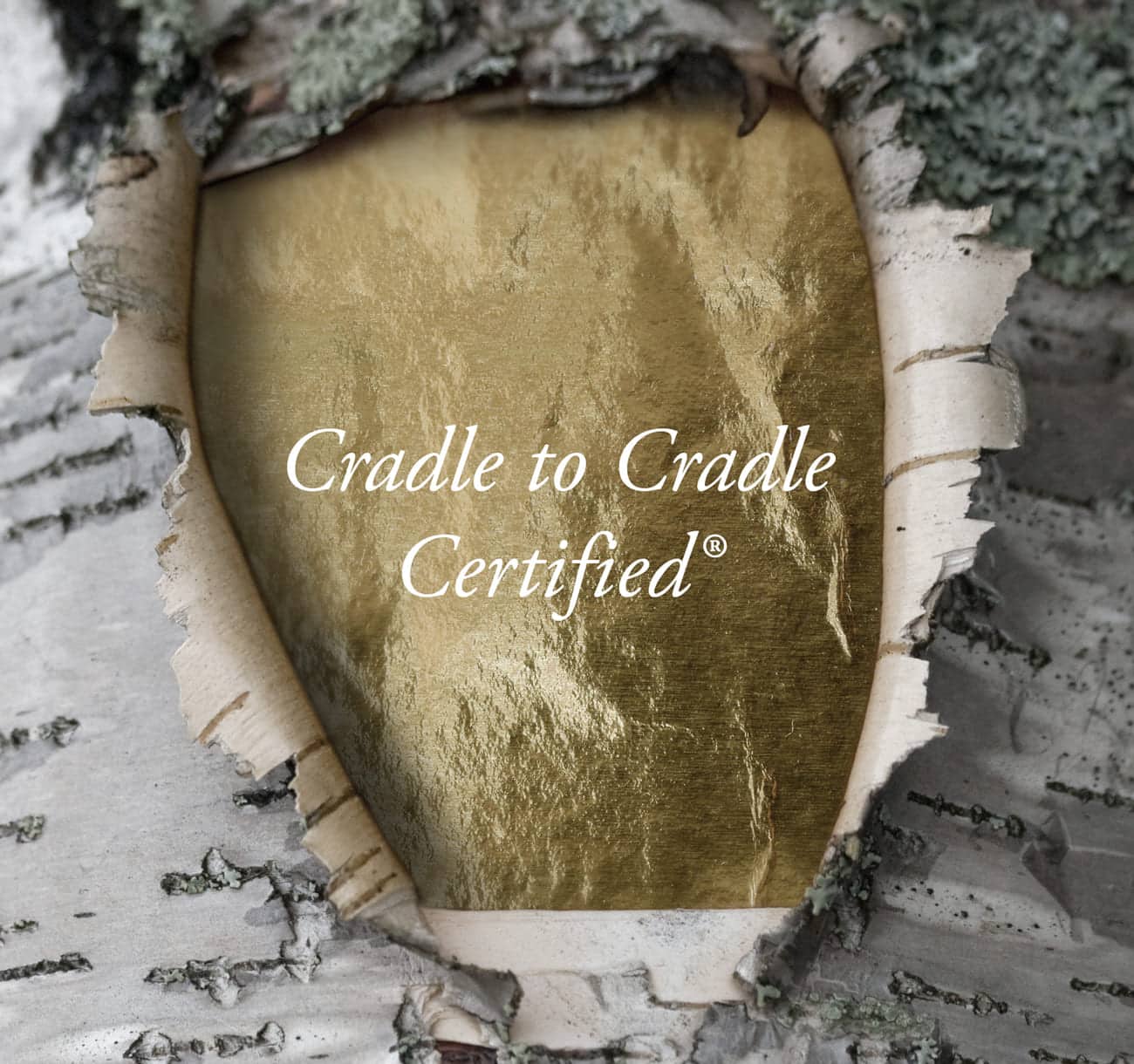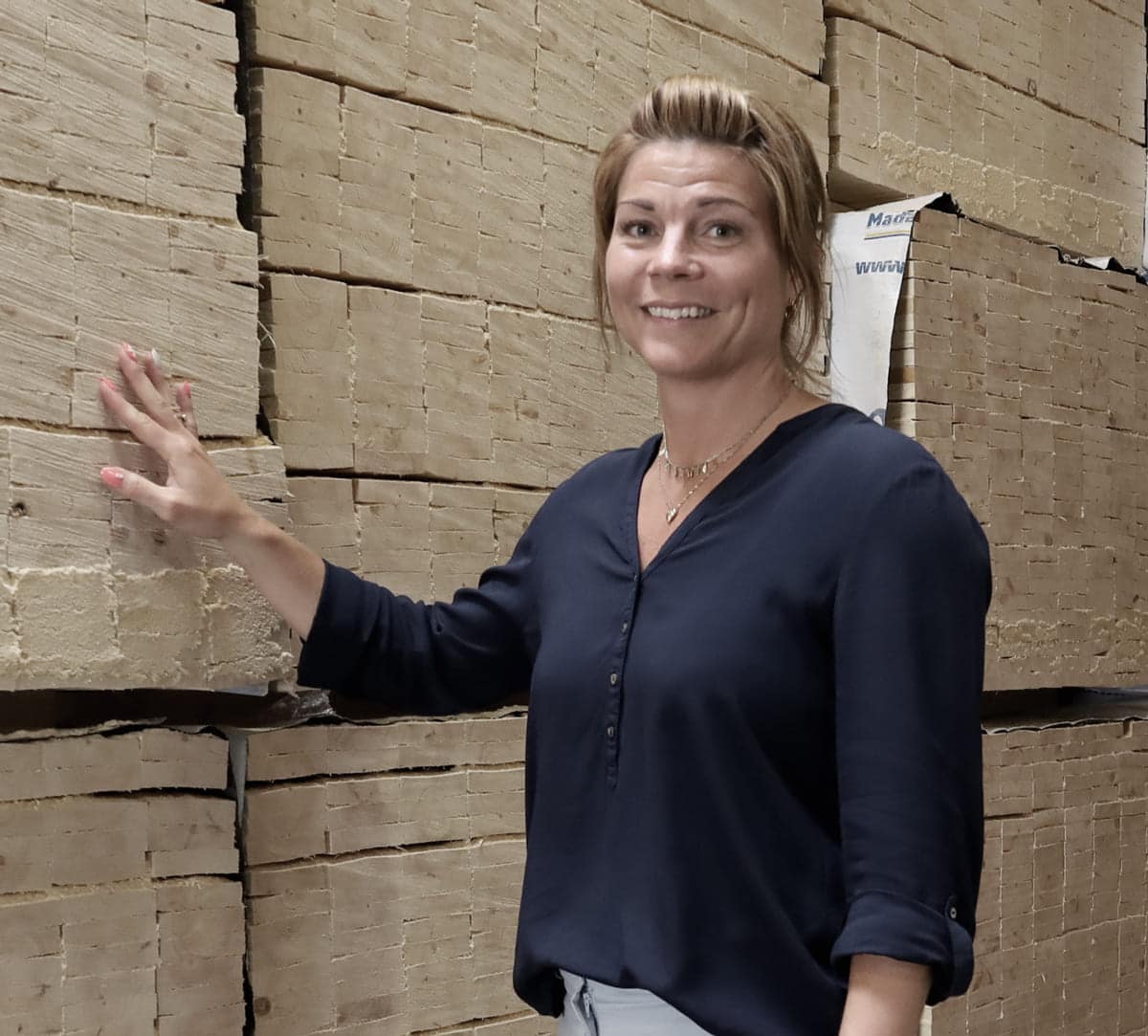Green growth
Sustainable businesses will be tomorrow’s winners
The companies in our portfolio are active within different industries and regions, which naturally creates a wide variety of unique opportunities and challenges. The sustainability work carried out in some of our companies is described here.
Lessebo Paper
As a Swedish paper manufacturer, Lessebo Paper has undertaken to develop high-performance, environmentally responsible paper for the international market. In 2021, Lessebo Paper published an environmental statement reporting record low fossil CO2 emissions. Carbon dioxide emissions have been reduced by 79% since 2013, marking a milestone in the company’s strong focus on responsible production with the environment in mind.
Production of paper products from Lessebo Paper generates 19 kg of CO2 per tonne of finished paper. On average, a producer of similar products in Europe discharges 616 kg of CO2 per tonne of finished paper. This figure includes emissions from
the production of both pulp and paper, an industry-standard accounting method in the paper industry. This shows that products from Lessebo Paper generate only a fraction of the carbon dioxide emissions compared to those from an average paper mill with a similar product mix.
To consolidate Lessebo Paper’s strong environmental profile, the paper producer launched the Climate Compass in 2020, a guide that delves into detail about everything regarding the environment and paper. Green initiatives that Lessebo Paper is working on are highlighted, such as the use of waste energy from production to heat buildings in the community of Lessebo via the local district heating network. The Climate Compass is a unique publication that invites customers to participate in the sustainable paper discussion.

World first
Lessebo Paper has invested further in eco-friendly production, and in 2021 the company received Cradle to Cradle Certified® Gold environmental accreditation for its Scandia 2000 and Lessebo Design white paper grades. Cradle to Cradle Certified® is an environmental accreditation that has examined the environmental impact of products from a life cycle perspective, from raw materials to end product and recyclability. Lessebo Paper’s paper grades are the first in the world to meet the requirements for Gold accreditation.

PEFC™ is a standard guaranteeing that a product or service will be produced or provided according to specific quality requirements. Forests certified by PEFC™ are compliant with the specific requirements of the Forest Europe partnership. The Federation of Swedish Farmers and the Federation of Family Forest Owners are behind PEFC™ in Sweden.
FSC® is an independent, international member organisation that promotes environmentally sound and socially responsible use of the world’s forests. Its certification supports endangered animals and plants, the future capacity of the land to sustain forests, safe and healthy working conditions for forest workers, and the rights of indigenous peoples.

Cradle to Cradle Certified® is a registered trademark of the Cradle to Cradle Products Innovation Institute. Cradle to Cradle Certified is the world’s most advanced certification programme for the design, manufacture and verification of materials and products that are safe, circular and responsibly produced. Visit C2CCertified.org for more information on the Cradle to Cradle Certified Products Program and its requirements.
Lessebo Paper’s Scandia 2000 and Lessebo Design products hold Gold Cradle to Cradle Certified® accreditation. ESS-ENN Timber glued laminate products hold Silver Cradle to Cradle Certified® accreditation.

Green bonds can be verified and issued in a large and growing number of industries, including:
Energy efficient buildings and housing projects
Sustainable forestry and agriculture
Clean transport
Solar, wind and other renewable energy sources
ESS-ENN aims to be sustainability role model
ESS-ENN Timber’s ambition is to be a role model when it comes to sustainability. The company performs a wide range of activities in the timber products industry and works hard to maintain good relations with both customers and employees, who are given opportunities to develop their skills.
“Timber is a fantastic and durable material offering endless possibilities. We also feel we give something back to nature due to the fact that our machinery is operated in an energy-efficient and circular manner as well,” says Caroline Troedson, Site Manager at ESS-ENN Timber.
ESS-ENN is Sweden’s biggest supplier of glued laminate products, which involves a responsibility to lead the way forward. The company’s glued laminate products hold environmental certification and the company has invested in a biofuel boiler, where it burns its waste products. It also holds FSC and PEFC certification in sustainable forest management. Recently, the company’s glued laminate products were also awarded Silver Cradle to Cradle Certified® accreditation. Cradle to Cradle Certified® is the globally recognised standard for sustainable, safe and circular products.
“This includes sustainable and safe practices within the compa- ny, human rights and how we look after the environment as well as we can,” explains Troedson.
The timber used by ESS-ENN comes exclusively from Swedish forests, which streamlines logistics and reduces transports. Deforestation reduces nature’s ability to absorb carbon dioxide from the atmosphere, and so the company is working actively on replanting trees.
“At least two new trees are planted for each tree harvested, which will safeguard the forests of the future. Young forest also captures more CO2 than old forest.”

Investing in staff
The company is currently operating with good profitability. How the company manages its relationships with both customers and employees is one of the keys to its success. The employee who has been with the company the longest has worked at ESS-ENN since 1983, covering almost the entire 40-year history of the company.
“It is important to invest in staff. We are now actively working to meet the needs of our employees. This is being done by means of skills development, for example, but also by involving them more in the running of the business.”

